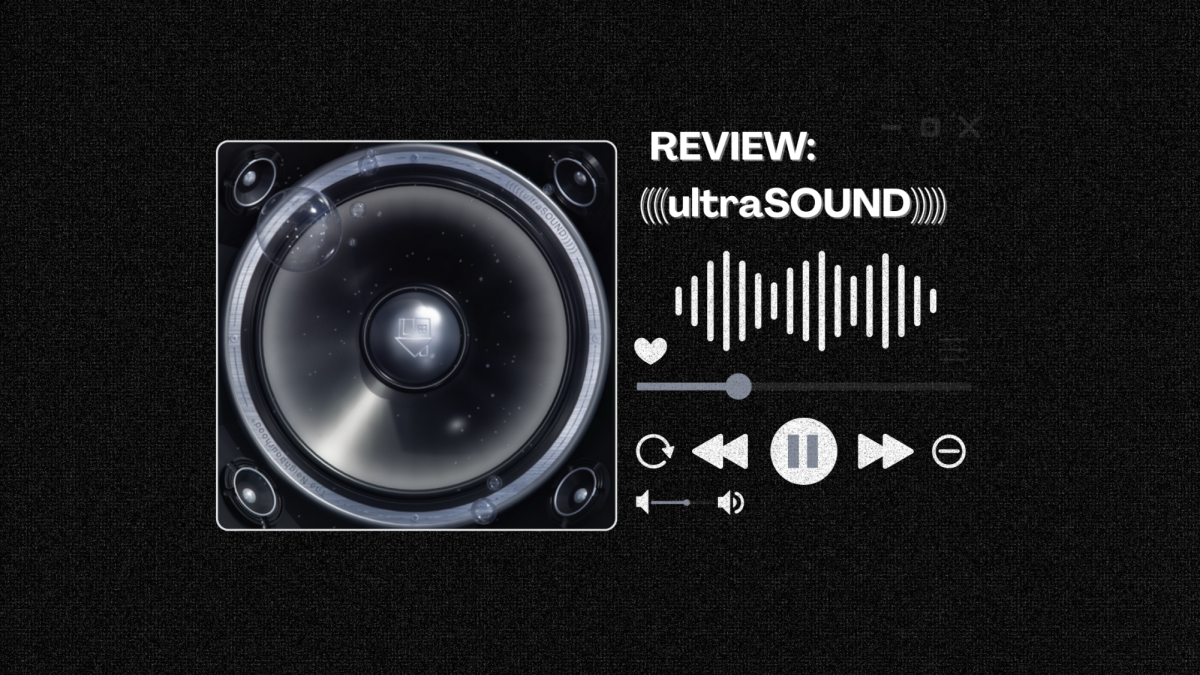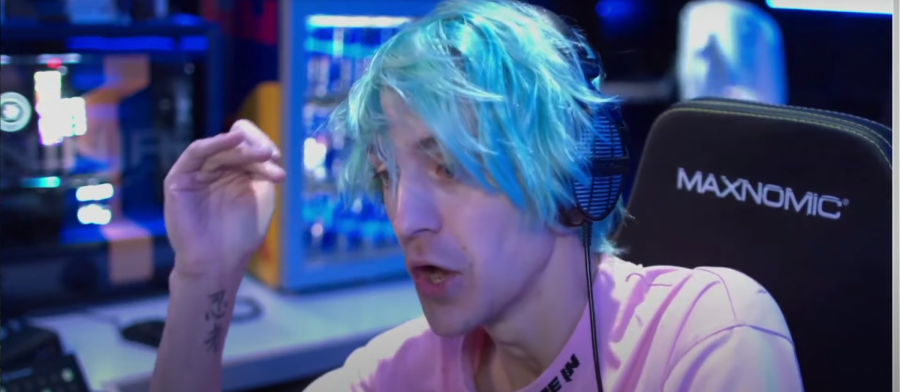OPINION: People are being racist in your chat, Ninja. Do something.
Not fighting racism is ‘such a weak mindset’
Tyler “Ninja” Blevins threatens to quit Fortnite because of an alleged “stream sniping” incident during a Fortnite stream on Thursday, Feb. 4, 2021. He said he was “stream striped,”which is when another player mid-game watches a popular streamer to gain a competitive advantage against that streamer. (Screenshot via Ninja’s Twitch).
March 9, 2021
Richard Tyler Blevins, also known as Ninja, is arguably the most popular gaming personality of the recent decade and he had a message for parents in a recent Q&A for the New York Times.
Blevins recently said, among other things, that the internet culture unfortunately allows kids to say racist and offensive things in a shroud of anonymity.
It is true. The anonymous nature of the world wide web breeds toxic behaviors without fear of repercussions. People around the industry know this issue and are looking for ways to combat it.
For example, Riot Games implemented a system in League of Legends to reward players for good behavior. League of Legends is notorious for having toxic players who would fire up insults and slurs at a whim.
The problem is: Blevins does not want to man-up and give these hooligans a lesson whether he likes it or not. A serious “Hey man, many people are hurt when you say things like that, and I don’t condone it,” can be beneficial to a younger person who looks up to you.
In the same paragraph, Blevins made his message to the parents of his adoring fans:
“How does a white kid know he has white privilege if his parents never teach him or don’t talk about racism? If they’re gaming and their first interaction with racism is one of their friends saying the N-word and they have no idea what it is — what if it was on my stream? Is it my job to have this conversation with this kid? No, because the first thing that’s going on in my head is, This kid is doing this on purpose to troll me. If someone says a racial slur on someone else’s stream, it can potentially get that streamer banned.”
If a kid’s first interaction with racism were in one of his streams, that kid wouldn’t learn a single thing.
Let’s just forget the fact that Blevins isn’t a parent.
It is not just the people who birth us that form our understanding of what’s right and wrong. Environment, media and role models can play a significant factor in that regard.
Blevins claims that these behaviors are “awful” but he is not far off from his fans in terms of toxicity. Blevins is known to have outbursts of rage during streams and would berate other players.
In February of 2020, Blevins criticized a teammate on stream for underperforming in a game of Valorant, saying that people who use the excuse “it’s just a game” are lazy after calling the guy stupid.
After the incident, Blevins tweeted statements to double-down on his stance.
The phrase “it’s just a game” is such a weak mindset. You are ok with what happened, losing, imperfection of a craft. When you stop getting angry after losing, you’ve lost twice.
There’s always something to learn, and always room for improvement, never settle.
— Ninja (@Ninja) February 18, 2020
Former Destructoid journalist Jim Sterling criticized Blevins in an 18-minute video saying that “Obviously, f—ing obviously it is not weak to look at a video game as just a video game because it’s a f—ing video game.”
Keep in mind that the Ninja “it’s just a game” incident was over a ranked match and not a main-stage tournament. There were no stakes involved.
How can Blevins compare himself to men who know how to stay composed yet continue to propagate the toxic behaviors you claim to abhor?
Speaking of toxic behaviors, the United States still has underlying issues regarding systemic racism and sexism. The indifference in Blevins’ message shows immaturity and lack of awareness. Was the riot in the Capital not enough? Did the shooting of Jacob Blake in Blevins’ home state of Wisconsin not affect him? “It takes a village to raise a child,” is the proverb here.
Of course, it is not Blevins’ job to tell a kid the context of the N-word, but trolling is not a good enough reason to absolve your responsibility as an “influencer.”
Blevins is a white male that holds influence to 16.5 million followers on Twitch. At least pretend that you care about our country’s situation and make an effort.
It is becoming harder and harder to find an excuse to not interject, especially when it comes to racism. For Blevins, his excuse is being unable to contact the infringing chat members’ parents, per the New York Times Q&A:
“It would be awesome if when someone said something threatening, you could be like, ‘Let me look up this dude’s gamer tag on this website’ — if the law could do this, not a normal person — and then boom: ‘It’s Jimmy. He said this. Let’s call his parents.’ But it all comes down to parenting.”
Well, Ninja, someone’s already done just that. Former journalist Alanah Pearce already showed us how it’s done back in 2014.
Pearce, currently a writer for Sony Santa Monica Studios, once tracked down a kid’s parents on Facebook and told on him.
Pearce contacted the mothers of four children who have verbally harassed her online. She got a hold of one of the parents and tweeted their conversations.
Sometimes young boys on Facebook send me rape threats, so I've started telling their mothers. pic.twitter.com/0Cbs81eXiE
— Alanah Pearce (@Charalanahzard) November 28, 2014
I’m not saying Belvins needs to track down the parents of every troll in chat. All he needs to do is take the small step of denouncing racism on his streams, but he does not want to do his part. Change, especially in the United States, only happens through action no matter how big or small.
Gaming influencers with large followings, especially those with young and impressionable kids, need to step up and take responsibility for what happens in their streams. These kids are not only watching these gamers angrily overreact, they are learning these same behaviors without consequence. And if this continues, toxic gaming culture will never stop.




































































































































